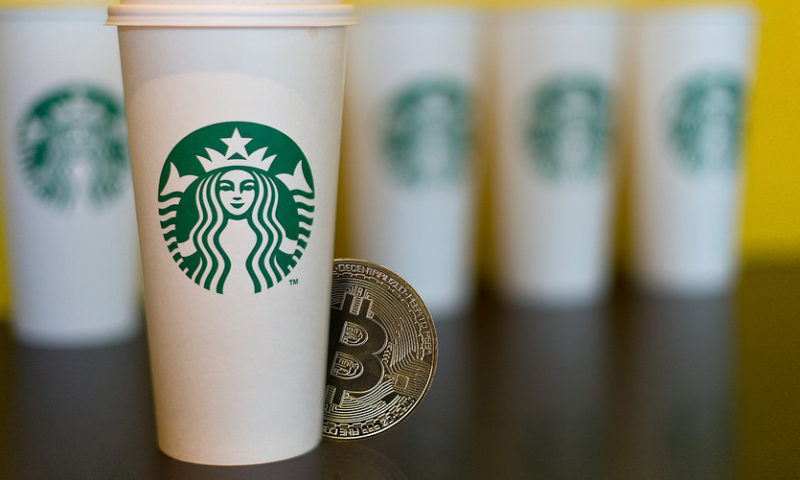Paying for coffee with bitcoin would be ‘extremely burdensome,’ says Coin Center tax expert
A cup of coffee might cure a headache for some, but for those championing the news that you may soon be able to pay for your latte with bitcoin, an even bigger headache — and it involves the tax man — is brewing.
The Block reported Monday that coffee giant Starbucks SBUX, -0.65% had received significant equity in Bakkt, a newly formed digital asset ecosystem. In return, Starbucks stores are to install Bakkt software this year to allow coffee guzzlers to pay with bitcoin BTCUSD, +0.59% . As tempting as it may sound to elevate the technology around this daily habit, the crypto-for-coffee transaction has one glaring pain point: tax reporting.
Current rules require that every crypto transaction be logged, for online, big-ticket splurges all the way down to any tap-and-go at a bitcoin-embracing bodega. Starbucks may be a big chain — it might even think it can eventually move the regulatory needle when it comes to crypto — but its customers are not out of the reach of the Internal Revenue Service.
“If you were to use bitcoin to buy coffee, it is technically feasible, but it would be extremely burdensome for tax purposes,” said James Foust, senior research fellow at Coin Center, a nonprofit research and advocacy center focused on cryptocurrency and decentralized technology. It, too, is helping to take a look at the regulatory burden around everyday purchases with digital assets.
“You’d need to work out the fair-market value [of a bitcoin] at the time [of a coffee purchase] versus the fair-market value [at tax-filing time], and you’d need to itemize the gains or losses,” he said. “If you realized 40 cents on the gain, you’d need to pay a few pennies.”
Given bitcoin’s volatility, this could prove tricky.
The big dilemma may be this: Is it worth it? Because for now, the rule is established. In 2014 guidance, the IRS made it clear: “For federal tax purposes, virtual currency is treated as property. General tax principles applicable to property transactions apply to transactions using virtual currency.” That means the swap of one property for another must be reported.
Starbucks seems set on the idea. At the launch of Bakkt in August 2018, Maria Smith, then vice president in partnerships and payments for Starbucks, said in a press release that, as a flagship retailer, “Starbucks will play a pivotal role in developing practical, trusted and regulated applications for consumers to convert their digital assets into U.S. dollars for use at Starbucks.”
Starbucks did not respond to requests for comment on the equity stake and progress toward implementation.
Kirk Phillips of the BitcoinCPA said that tax law should not discourage innovation but that he can see problems for crypto users come tax day. “I think the technology has to roll out and move good ideas forward regardless of tax laws that may hinder adoption,” he said. “[But] it’s likely that new users will go ahead and enjoy coffee and bitcoin and not know what the real cost of compliance is.”
Coin Center experts have said there are small filing changes that could solve the cumbersome system: the first being to designate cryptocurrency as foreign currency. This, too, has its own set of considerations, including the loss of capital-gains treatment for transactions over $200.
“A better option might be to simply create a de minimis exemption for cryptocurrency the way it exists for foreign currency,” wrote Jerry Brito, executive director at Coin Center, in a 2017 proposal the research firm made on taxation of digital currencies.
“The purpose would be to remove the friction and encourage the development of this innovative technology and its use in payments — something any member of Congress should be able to get behind,” he added.
For now, with the Starbucks installation on the horizon, bitcoin aficionados might want to think twice before embracing the technology they so champion, at least when they get their regular pick-me-up at the ubiquitous chain.
“It would be really, really onerous,” warned Foust.

